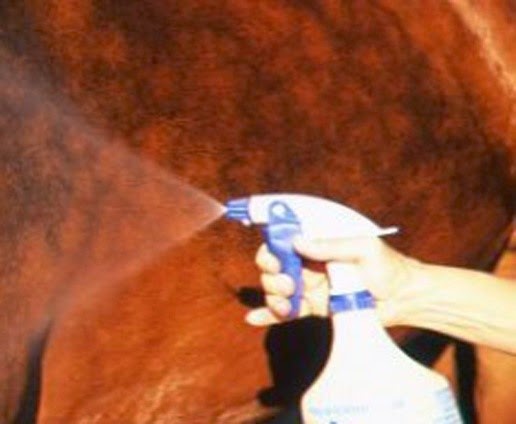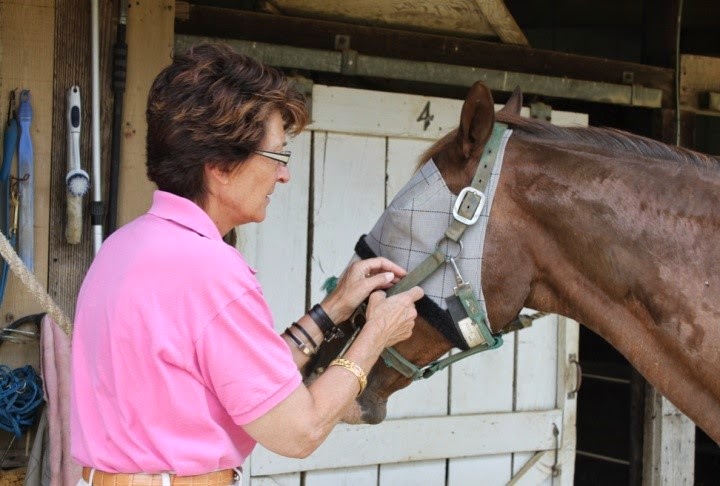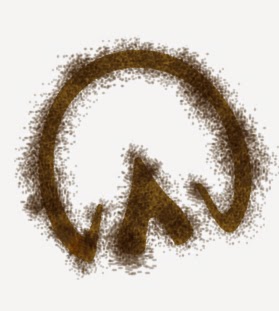Spring is finally here bringing lovely warm weather, as well as those nasty, annoying, biting flies! Not only do they bite and hurt, but they can make me and my other pasture buddies very sick. On top of that, they swarm on my sweet, delicious doughnuts!
Spring is the ideal time to manage flies before they get out of hand. It is also the perfect time to get your horsey friends vaccinated and to update their Coggins Test. A Coggins Test, named after my fellow scientist friend, Dr. Leroy Coggins, detects antibodies from the Equine Infectious Anemia (EIA) virus. This virus is a lentivirus, which is the same type of virus that causes FIV in cats. Back in the day, EIA was  commonly known as “Swamp Fever” and it is VERY dangerous! Horses can contract EIA directly from the blood, saliva, milk, and other bodily secretions of an infected horse. Indirect transmission occurs from the bite of a stable fly that bites an infected horse. Another common method of transmission is from reusing needles and instruments. Because the virus can be present for a long time before symptoms develop, using needles more than once is not smart!
commonly known as “Swamp Fever” and it is VERY dangerous! Horses can contract EIA directly from the blood, saliva, milk, and other bodily secretions of an infected horse. Indirect transmission occurs from the bite of a stable fly that bites an infected horse. Another common method of transmission is from reusing needles and instruments. Because the virus can be present for a long time before symptoms develop, using needles more than once is not smart!
Many states have different rules for when a Coggins Test should be done, but no matter the state rule, it is always a good idea to test at least once a year to prevent the spread of this disease. I wouldn’t want anything bad to happen to me and especially to Hugme Christi! I don’t know what I would do without her! Managing flies around the barn and pasture can help decrease the chance of this. Some steps to take in the spring to manage flies and reduce the incidence of EIA are:
- Control Moisture: Flies are drawn to wet areas; eliminating standing water from places such as old tires, feeders, rain barrels, will help decrease them from multiplying.
- Manage/Remove Manure: Manure is the meal of choice for flies. Clean stalls and pens daily. Remove manure piles weekly or provide proper cover.
- Use Air Power: Not only do they cool me and my stable friends, but strategically placed fans will provide blasts of air to keep flies out of the barn.
- Cover Grain and Feeds: Use appropriate containers with air-tight lids, so they don’t eat my sweet treats!
Some things my pasture buddies and I do to keep flies off and avoid being bitten are:
- Before Hugme Christi and I go for a ride we always get a spritz of fly spray. However, if we are going to a place with a lot of flies, like a trail, we get a more thorough spraying!
- After our bath, we love being rinsed with vinegar! In case you didn’t know, vinegar is a natural fly deterrent!
- When grazing in the field, my pasture buddies and I love the protection of fly sheets, boots, and face masks!
- We use our long tails to shoo flies and we stamp our feet to shake them off of our legs
After a very wet and snowy winter, I hope that you will use good preventative fly management measures to control flies that could possibly spread EIA this spring. I will be doing my part to keep them off Hugme Christi with the help of gentle nudges and big swishes of my tail! For more information on EIA, read the following Animal Plant Health Inspection Service factsheet: APHIS EIA. To learn more about stable and manure management, visit the Equine Science Center’s Ask the Expert feature.
Cheers!


